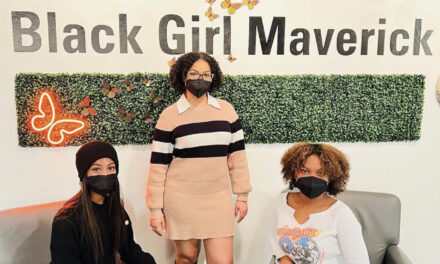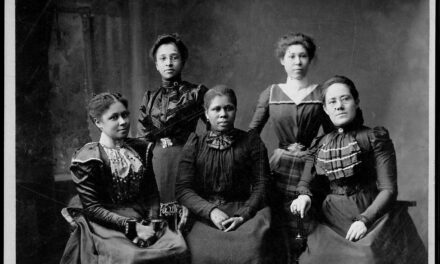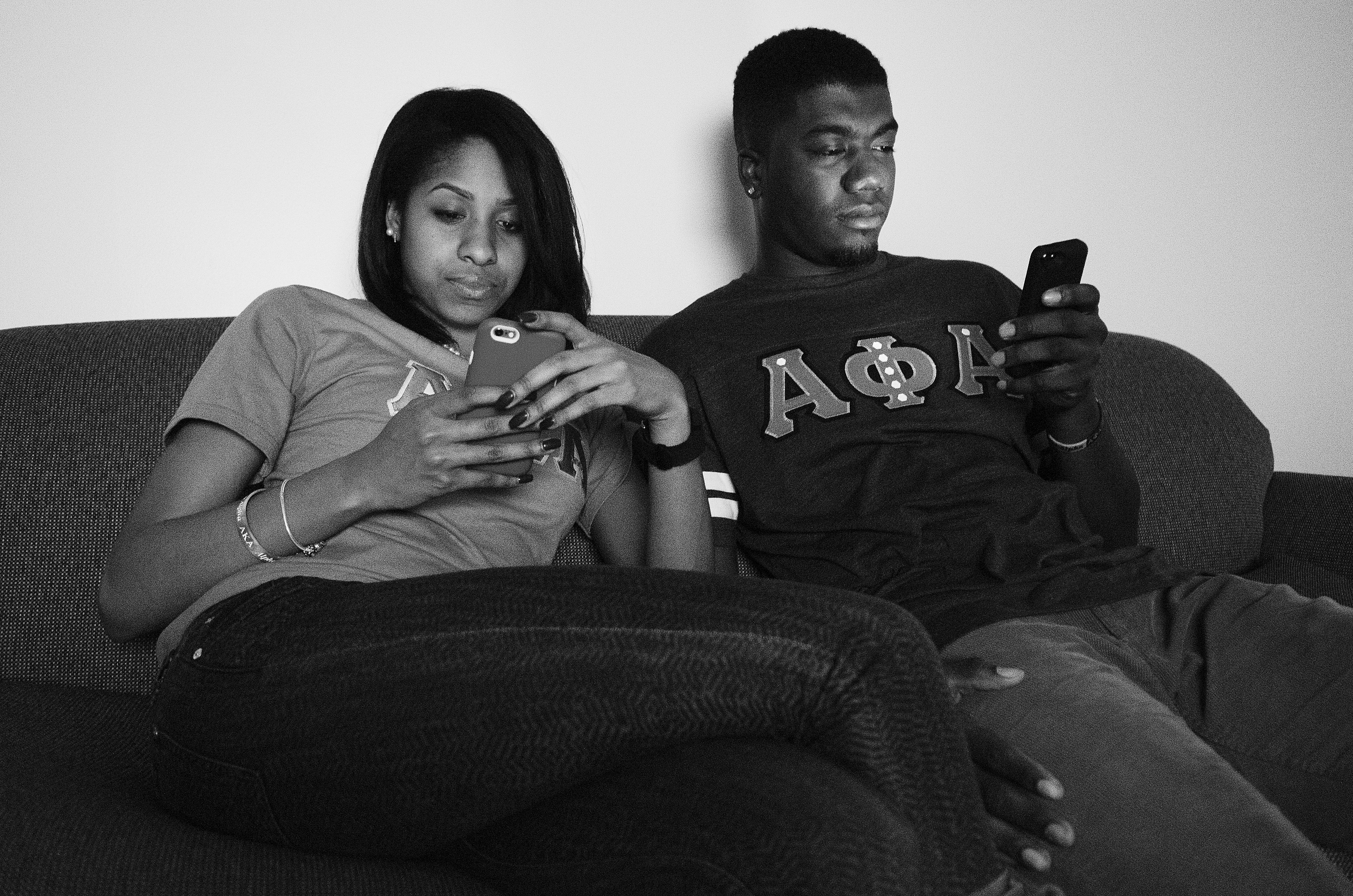“From Raleigh to Palestine!” “Intifada, Intifada!” shouted protestors as they called for an end to the bombing of Gaza by Israel.
On Sunday, Oct. 23, a peaceful protest in support of Palestine occurred at Moore Square in downtown Raleigh, just blocks away from where an Israeli protest calling for the release of hostages by Hamas occurred earlier that morning. Throughout the Triangle area of North Carolina, political demonstrations have surged in response to the rising death toll in the ongoing Israel-Hamas conflict, which began with Hamas’s surprise attacks on Oct. 7.
Thousands of people returned to downtown Raleigh for the third pro-Palestine march this month. As the rally began at 3 p.m., a small crowd donning black and white checkered keffiyehs, a garment symbolizing Palestinian unity, gathered while proudly holding up the flag of Palestine.
The first speaker, Alaa Hamouda, a Gazan woman, faced the crowd holding a megaphone and began to share her story. “I have been in the U.S. for less than five years now. I left everything behind – my family, my brothers, my sisters, my nephews, my cousins – everyone. All the Gazans are our family. I stand here today with a broken heart, calling every one of you to take action, because every single voice counts.”
Hamouda also pointed out the rising death toll of Palestinians. She said, “The last numbers I read a couple of hours ago were more than 4,800 people, innocent people in Gaza have been killed so far. 1,800 of them are children. 1,500 of them are women. So we’re talking about very peaceful innocent people being killed. The living conditions of Gaza have been very bad before the war even started…no humanitarian aid has entered Gaza except for 20 trucks. My family and friends say most of the things that entered Gaza were coffins, coffins, not things that people need. On a normal day, 500 trucks enter Gaza daily. And now we’re talking about 20 trucks.”
In the weeks allowing the protest on Oct. 23, the Gaza Health Ministry reported that the Palestinian death toll has surpassed 8,000, with most of them being women and children. In Israel, over 1,400 civilians have died, many of whom were killed during the initial Hamas attack.
Hamouda ended her speech with tears in her eyes, “All my family is back home and I have lost touch with them. The last thing I heard was that some of my family had to evacuate to the South. They are sheltering in a bomb house with no blankets, no mattresses, no food, no water. When I asked what are you doing, they said ‘we are just waiting for our turn, we don’t know if we are going to talk to you again.’ All of them are saying goodbye, forgive us. I, as a Gazan woman, as a mom, am feeling very ashamed being here watching my people die. My heart is broken, I want to go die with my family. I don’t want to be here while all of my family die in Gaza.”
Local activists from the Starbucks Workers United and Black Workers for Justice joined Hamouda’s passionate plea for a ceasefire to end the violence against Palestinians in Gaza and the West Bank. Raleigh City Council member, Mary Black, addressed the crowd by expressing her solidarity with the Palestinian people. Both the Black Workers for Justice and Mary made sure to emphasize the profound connection between the struggles of Black and Palestinian communities.
Black said, “This issue matters to me personally because I feel and see the parallels between Black and Palestinian liberation. I know what it feels like to have a settler colonial nation commit generational atrocities against your people and then rewrite history to sweep everything under the rug…Too many people in the West have been fooled into believing you either stand with Israel or you stand with terrorists as if supporting Palestinians’ rights to self-determination and resistance means supporting war crimes…There are no perfect victims as there are no perfect people, there’s just a fundamental right to self-determination and freedom to thrive in the land we inherited and there are oppressors who oppose that right.”
Among the onlookers was Dr. Ajamu Dillahunt-Holloway, an Assistant Professor of African American History and Public History at NC State, who has done extensive research on the interconnectedness of the Black and Palestinian struggles. To delve deeper into the relationship between the liberation of Palestinians and people across the African diaspora, Nubian spoke with Dr. Dillahunt Holloway.
Nubian Message (NM): How does your field of academia shape your understanding of the Israeli-Palestinian conflict?
Dillahunt-Holloway (ADH): From my many years of study, I learned that it’s almost impossible to understand African Americans without understanding the larger world, because African American activists were not only talking about social change, here, in the US. They were talking about social change across the world and African Americans have long been aware and conscious of what we call this question of Palestine. So, if you look at the Student Nonviolent Coordinating Committee, founded at Shaw University in 1960, it really was the youth voice of the civil rights movement. They were critiquing the war in Vietnam and in 1967 they released a statement in support of Palestine. And then of course…you have a whole range of African American leaders who are raising questions about what was happening to Palestinians as part of a larger fight against colonialism…
NM: How important do you think media literacy is when it comes to the Israel-Palestine conflict?
ADH: Malcolm X told us if you’re not careful, the newspaper will have you opposing the people who are being oppressed and glorifying those who are doing the oppressing. When we talk about this current iteration of what is happening in Palestine and Israel, a lot of it is divorced from context. So, oftentimes people don’t talk about 97% of Gaza’s water being undrinkable, or that, since the beginning of the year, 250 Palestinians had been murdered by Israeli soldiers. Context is important and the media approached what has taken place with very little context, very little framing of the events. So media is important. Nelson Mandela said, our freedom is incomplete without the freedom of Palestine because he saw that the same system that made apartheid in South Africa possible, was the same system that made the State of Israel in his creation possible. So, when you’re trying to navigate the media, history and context are important.
NM: There are many competing terms for what is happening between Israel and Palestine. From a historical lens, how do you think the conflict will be defined in the future?
ADH: If we look at South Africa, and how apartheid was defined, it would be defined as that. But I also don’t think you can get away from talking about the subject without the question of genocide. So I do think genocide and apartheid in an occupation will be how it is defined from a historical perspective.
NM: Is a two-state solution possible?
ADH: I can’t offer an answer to what the solution is, but I think there are a lot of people out there who can. I think right now, a solution that people have been calling for is a ceasefire and I think that’s important. Some have even said in order for a solution to take place means an end to the occupation and allowing people to be self-determined.
NM: Do you think the worldwide protests will be able to make a difference in peacebuilding?
ADH: I think people making their voices heard from a historical basis has always made a difference. In London, there were almost 100,000, and in places like New York, Chicago, even here in Raleigh, there’s been in the thousands. I think they will make a difference. Hopefully, peace and justice for everyone is something that we can see very soon.
The protest on Oct. 23 was followed by a march through the streets of downtown Raleigh. Handcrafted signs bore powerful messages like ‘Resistance Against Occupation!’ ‘Bombing Kids is Not Self Defense,’ and ‘We Are Human Despite What They Tell You.’
Local Jewish communities in Raleigh have also gathered to demand a ceasefire and an end to the killing of Palestinians. On Oct. 15, the Jewish Voice for Peace’s local chapter rallied outside of the office of Congresswoman Valerie Foushee, calling for support for Palestinian civilians. “As a Jewish person, I cannot watch the U.S. and Israel fund a genocide against the Palestinians. Not in my name, not ever,” said protestor Julia Springer. The group placed pebbles outside Foushee’s office to represent the number of Palestinians who have been killed and called for humanitarian aid in Gaza.
From Raleigh to Palestine, people across the world are becoming increasingly concerned with the question of Palestine.




